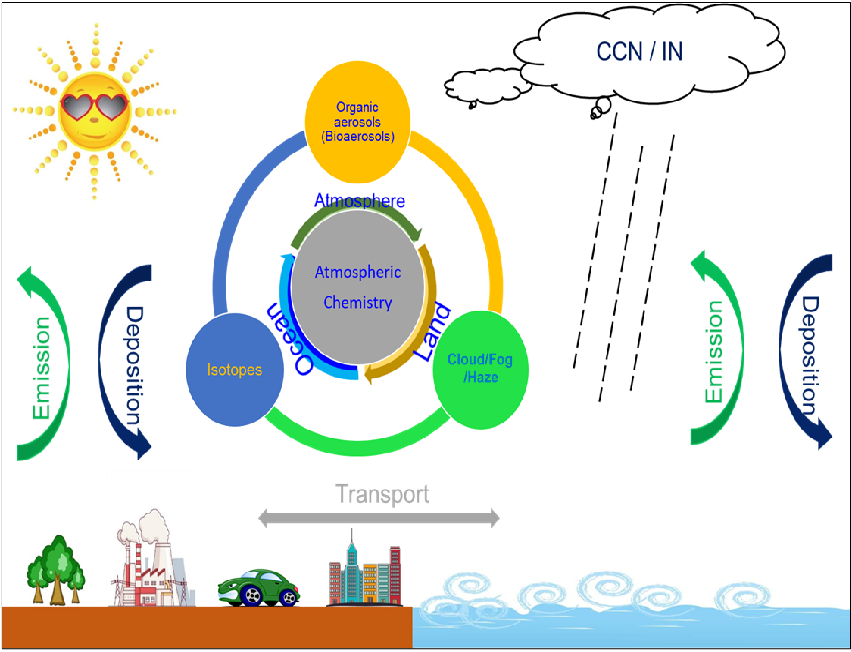Center for Land/Ocean-Atmosphere Interface Science (CLIS) focuses on China's overall development of ecological civilization by implementing the strategy of sustainable development in response to the major scientific and technological needs on atmospheric environmental pollution and global climate change. The center studies the processes of material and energy exchange and its environmental and climate effects among ocean-land-atmosphere interfaces based on the theory of the Earth system science.
The center will take full advantages of interdisciplinary science to carry out basic, systematic, forward-looking and strategic scientific research in the fields of (i) causes, control and influence of air pollution, atmospheric deposition and biogeochemical cycles, (ii) interactions among surface ecosystem, aerosol, cloud and global climate, (iii) environmental and climatic effects of dust and biological aerosol, atmospheric chemistry and circulation at the interface between atmosphere and other medium, and (iv) atmospheric and water microplastic detection and ecological environmental effects.
The center makes long-term observation and simulation of atmospheric environment, so as to reveal the potential impact of human activities on the Bohai key zone and the global earth ecological environment, deepening the understanding of atmospheric motion in the earth system, providing scientific support for coping with environmental and climate changes and implementing sustainable development.

The schema of CLIS. Study of the ocean-land-atmosphere interface processes is the core research of CLIS, focusing on chemical and isotopic compositions of atmospheric aerosols, cloud water, rain water and snow ice as its main research objectives to reveal the exchange and transformation mechanism of substances and energy between the ocean-land-atmosphere.